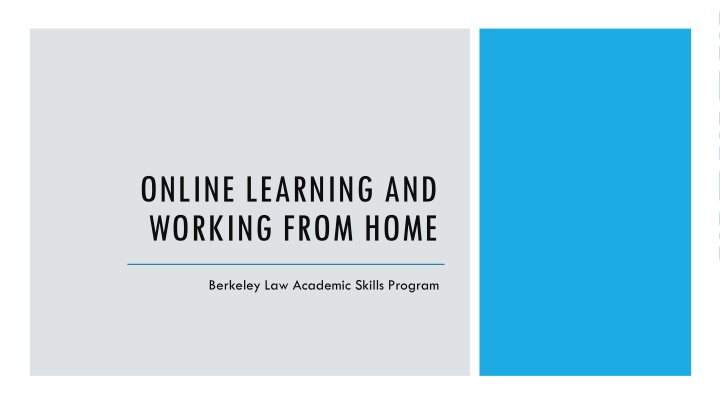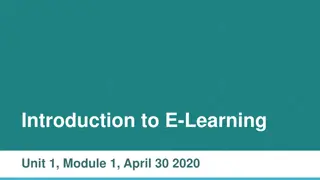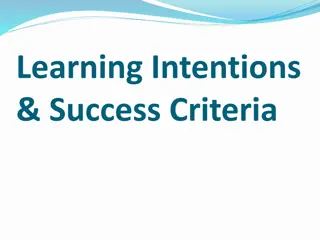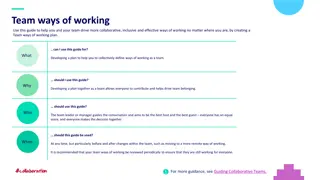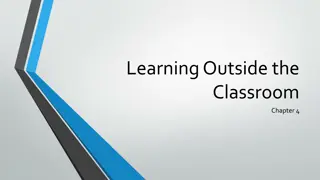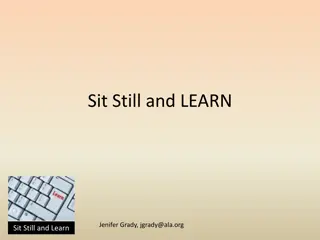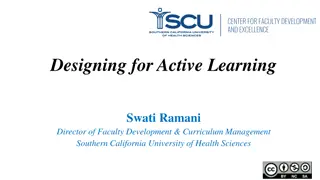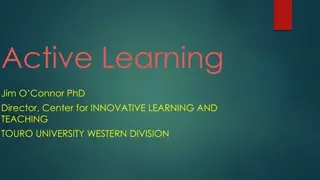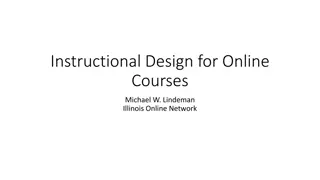Effective Strategies for Online Learning and Working from Home
Develop a successful routine for online learning and remote work with tips on creating a mental health plan, setting up a study space, maintaining a healthy schedule, and avoiding distractions. Enhance your productivity, focus, and well-being while juggling academic responsibilities and work commitments from home.
Uploaded on Sep 16, 2024 | 2 Views
Download Presentation

Please find below an Image/Link to download the presentation.
The content on the website is provided AS IS for your information and personal use only. It may not be sold, licensed, or shared on other websites without obtaining consent from the author.If you encounter any issues during the download, it is possible that the publisher has removed the file from their server.
You are allowed to download the files provided on this website for personal or commercial use, subject to the condition that they are used lawfully. All files are the property of their respective owners.
The content on the website is provided AS IS for your information and personal use only. It may not be sold, licensed, or shared on other websites without obtaining consent from the author.
E N D
Presentation Transcript
ONLINE LEARNING AND WORKING FROM HOME Berkeley Law Academic Skills Program
MOTIVATION/FOCUS IN DIFFICULT TIMES HEALTHY AND SAFETY SELF-CARE YOUR LOVED ONES YOUR HEART & SOUL
Step 1 Create a mental health plan Step 2 Create a schedule GETTING ORGANIZED Step 3 Create a study space that minimizes distractions Share your schedule and plans (class time, study time, breaks) with the people in your lives - family, partner, housemates, etc. Step 4
Develop a routine to facilitate good sleep (lots of articles on this) Include movement in your schedule (walk/jog/roll, stretch, yoga, etc.) CREATE A Schedule time for loved ones and activities that make you happy MENTAL HEALTH What will do you do when you feel stressed? Have a plan and write it down. PLAN Practice controlled breathing and/or meditate (UCLA has a free app) Practice self-compassion and other self-care strategies Communicate with your friends/family/partner about what you need or what they can do
Reflect on how, when, and where you study best Break up the day into small chunks of time Include breaks and specific times for other obligations CREATE A SCHEDULE Breaks can be meals, movement, relaxing, checking email, etc. Schedule more difficult tasks during your best study times Be realistic
Establish a consistent daily routine, starting with your morning routine Adapt DOING (ONLINE) LAW SCHOOL Engage Engage in class time with your professors - Avoid the temptation to multi-task - Internal motivation vs. external motivation/social norms Focus - Stay connected to family, friends, classmates, and faculty - Take advantage of law school resources Connect
Avoid reinventing your schedule unless its truly not working; go on autopilot Pomodoro technique: use a timer to to break down work into intervals separated by short breaks. Set specific goals for each small chunk of time. AVOIDING DISTRACTION AND PROCRASTINATION Partner with a friend or study group to set goals and hold each other accountable Be mindful and intentional about how you spend your time When you are in class or studying, leave your phone in a different room. Check it during breaks.
Anxiety about not being good enough or fear of failure Confusion about what the first steps of the task are or how to begin GET TO THE ROOT OF PROCRASTINATION Confusion about how to divide up a large or overwhelming task Confusion about what needs to be done or how to do it
Reflect Check in with yourself and ask: "Why am I avoiding this task?" Get advice Ask your prof or ASP fellow about how to get started, how to divide up the task, a timeline for completion, etc. IDENTIFY & ADDRESS WHATEVER IS HOLDING YOU BACK Organize Use organizational tools such as a to-do list, schedule, calendar, timer, reminders, etc. Repeat Celebrate your successes! Reflect on the process Adjust your process/get more advice as needed
